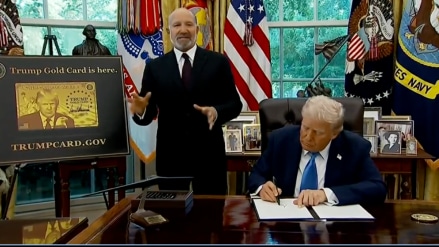US companies may have to pay $14 billion a year to hire skilled foreign workers after US President Donald Trump introduced a $100,000 fee for H-1B visas, which allow foreign employees to work in the country, a Financial Times report said.
The new fee was announced late Friday, led to a lot of confusion at airports on Saturday as people were rushing back to return to the US. The White House later came out with a clarification that said the $100,000 charge will only apply to new applicants starting with the next visa lottery in February.
The Trump administration said the move is meant to encourage companies to hire American workers. Some exceptions may be offered, but it’s unclear how many applicants would qualify.
Last year, the US issued over 141,000 new H-1B visas. If the same number applies this year with the new fee, companies would face $14 billion in costs annually. Most H-1B visas go to the IT industry, including engineers, coders, and scientists, though other sectors like healthcare and accountancy also rely on the program.
Industry and legal backlash
The announcement has drawn mixed reactions. Some of Trump’s supporters, including Elon Musk, back the H-1B program, while others like former White House strategist Steve Bannon want it abolished to protect American jobs.
Tech leaders have criticized the move. Garry Tan, CEO of start-up incubator Y Combinator, said the fee would “kneecap start-ups” and push talent to other countries like Canada. He warned it could hurt the US in the global AI race.
Lawyers representing major companies say the fee may exceed the government’s authority, and some firms are considering legal challenges. Matthew Dunn, a partner at law firm Herbert Smith Freehills Kramer, told the Financial Times that courts could block the fee.
More changes to H-1B programme?
The White House also plans broader changes to the H-1B program, including raising the minimum salary for visa approval. Republican lawmakers want visas allocated based on salary rather than a lottery. Companies may look at other visas, like the L-1, but these have stricter requirements, such as requiring employees to work abroad for at least a year.
Gary Cohn, a former economic adviser to Trump, said the White House’s clarification helps current visa holders understand their status. He added that higher fees could make companies more selective, applying only for highly skilled workers they cannot find in the US.
